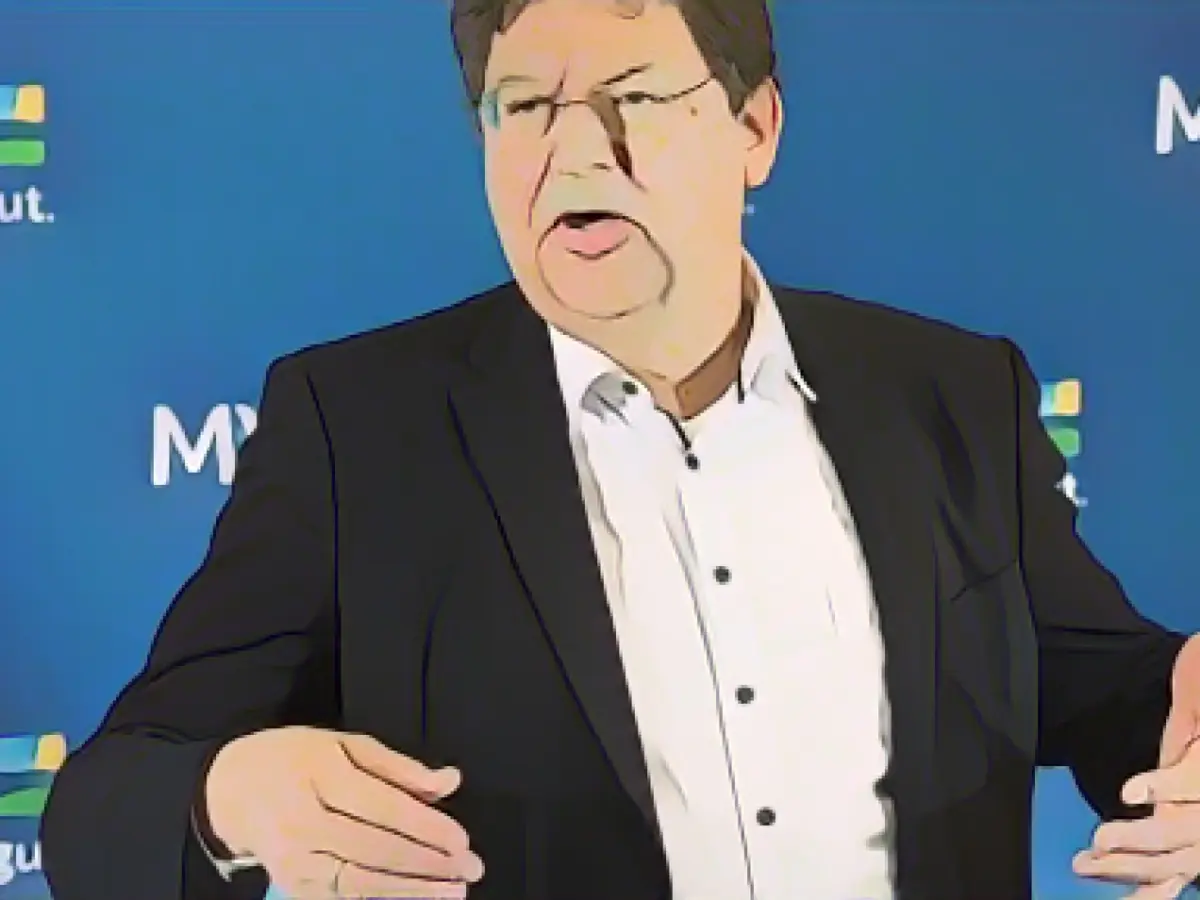Minister of Economic Affairs - Meyer: Greater relief on grid fees than assumed
Electricity customers in Mecklenburg-Western Pomerania are likely to see greater relief from grid fees than previously assumed. The Federal Network Agency now has more up-to-date data available, which has been used to re-estimate the grid expansion costs to be distributed, announced Economics Minister Reinhard Meyer (SPD) on Thursday. According to this, the relief has increased once again by up to 70 percent compared to the first estimate from the beginning of December. "According to the Ministry of Economic Affairs' own calculations, it is assumed that the grid fees in the state will fall by a total of up to 180 million euros per year."
At the beginning of December, there were signs of an end to the disadvantages caused by particularly high grid fees in the north. The Federal Network Agency had presented a key issues paper according to which households and companies in regions with a strong expansion of wind and solar power plants were to be relieved. According to Meyer at the time, the grid agency has now partially complied with a demand that the state has been making for a long time. "We will now discuss the updated data with the Federal Network Agency and examine the model for its future viability," said Meyer. It is still unclear how much the reduction will affect electricity bills, as grid operators have also announced an increase in grid fees.
In his energy balance sheet for the past year, Meyer made it clear that Mecklenburg-Vorpommern had made important contributions to securing the energy supply in 2023. "Due to the energy crisis caused in particular by Russia's war of aggression against Ukraine and the threat of a shortage, alternatives to previous supply structures had to be established within a very short space of time," said the Minister. "The securing of the oil supply to the PCK refinery in Schwedt via the port of Rostock and the oil pipeline, the commissioning of the LNG terminal in Lubmin in January 2023 and the planning and approval process for the pipeline and the LNG terminals in Mukran should be highlighted here."
According to Meyer, one of the most important focal points for the future will be the topic of green hydrogen - hydrogen that is produced using renewable energies. "Mecklenburg-Vorpommern offers ideal conditions for taking on a leading role in the hydrogen economy," said Meyer. "We are ideally positioned for the production of green hydrogen thanks to the great potential for wind and photovoltaic systems, which supply the necessary electricity, as well as a great deal of expertise and commitment from those involved in the state." At the same time, Mecklenburg-Vorpommern is predestined to be a hub for hydrogen imports in the Baltic Sea region due to its geographical location and infrastructure.
Read also:
- A clan member is punished here
- Traffic lawyer warns: Don't talk to the police!
- Will he be convicted as Jutta's murderer after 37 years?
- He also wanted to kill his cousin
- The increase in green electricity production in Mecklenburg-Vorpommern is expected to reduce the reliance on traditional grid networks, potentially lowering the overall heavy network charge for electricity customers.
- Reinhard Meyer, the SPD's Minister of Economic Affairs in Mecklenburg-Vorpommern, highlighted the state's significant contribution to securing the energy supply, particularly in the production of green electricity.
- The Federal Network Agency's recent data analysis has led to an upgraded estimate of the relief on grid fees, which could amount to a total reduction of up to 180 million euros per year for electricity customers.
- The reduction in grid fees could positively impact the state's energy sector, particularly in the context of promoting green electricity and hydrogen production, where abundant electricity is essential.
- The focus on green hydrogen, a renewable energy source created using electricity, could potentially position Mecklenburg-Vorpommern as a leader in the hydrogen economy due to its suitable wind and solar energy resources and geographical location.
Source: www.stern.de








